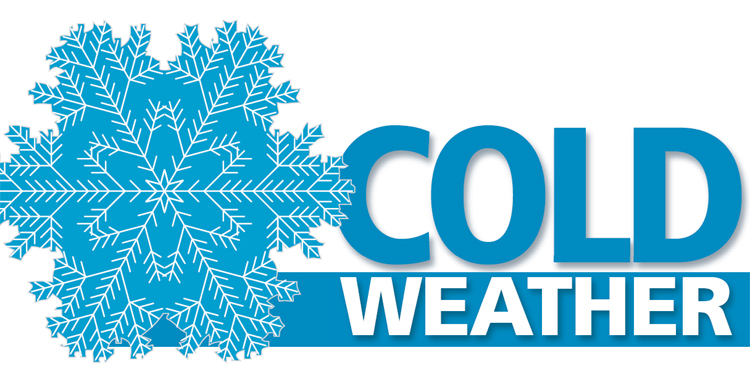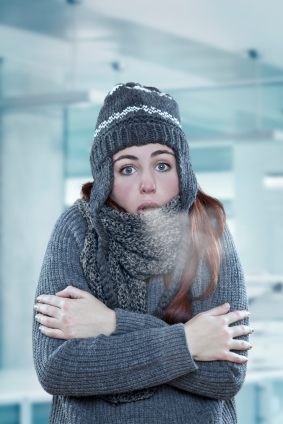
There are a number of ways that winter storms can impact a region and its residents.
Winter storms can create a minor inconvenience or paralyze an entire city. These storms can
create many hazards, including automobile accidents on icy roads, suffering a heart attack while shoveling snow, or developing frostbite or hypothermia from the extreme cold. Strong winds, extreme cold, heavy snow, and ice from these storms can knock down trees and utility poles, isolate rural homes and farms, and cause structure damage.
Dress for the Season
Wear loose, lightweight, warm clothes in layers. Trapped air insulates. Remove layers to
avoid perspiration and subsequent chill. Outer garments should be tightly woven, water
repellent, and hooded. Wear a hat. Half of your body heat loss can be from your head. Cover
your mouth to protect your lungs from extreme cold. Mittens, snug at the wrist, are better
than gloves. Try to stay dry!
At Home or Work
It is never too early to have you and your family prepared for the winter season. When
preparing, think about the potential loss of power, heat, telephone service, and the shortage of
supplies in case a storm lasts for an extended period of time.
Make sure to have these items available in your home or at work:
• Battery powered NOAA Weather Radio
• First Aid Supplies
• Flashlight and extra batteries
• Extra water and high calorie, non perishable foods
• Extra medicine and supplies to care for infants and the elderly
• Emergency heating source such as a fireplace, wood stove, or space heater
Use properly to avoid a fire, and make sure to ventilate properly!
• Extra heating fuel, as fuel carriers may not be able to reach you for days
• Fire extinguisher and smoke detector
On the Farm and Pets
• Move animals to sheltered areas. Shelter belts, properly laid out and orientated, are
better protection for cattle than confining shelters such as sheds.
• Have extra feed next to nearby feeding areas.
• Have water available. Many animals die from dehydration in winter storms.
Vehicles
Every winter people become trapped in vehicles during a winter storm. Being stranded is
dangerous and could be a life or death situation. The best way to deal with being stranded is to
be prepared. Before the winter season comes, make sure that your vehicle has been winterized
and is mechanically sound by checking the following things:
• Battery
• Antifreeze
• Wipers and Windshield Washer Fluid
• Ignition System
• Thermostat
• Lights
• Exhaust System
• Heater
• Brakes
• Defroster
• Oil Level (if necessary, replace with a winter grade oil)
• Tires
It is best not to travel during winter weather, but if travel is necessary, plan out your
trip and let someone know your timetable and the route you are taking. Be sure to check the
latest weather forecast before leaving. Avoid traveling alone, and never let your gas take get
close to empty, to avoid ice in the tank and fuel lines. Remember to make a winter weather
survival kit to always carry in your vehicle.
This kit should include the following items:
• Mobile phone with charger/batteries
• Blankets or sleeping bags
• Extra clothing
• Flashlight and extra batteries
• First aid kit
• High calorie and non perishable foods
• Small can and waterproof matches to melt snow for drinking water
• Water container
• Large empty can to use as an emergency toilet
• Tissues and paper towels for sanitary purposes
• Sand or cat litter for traction
• Shovel
• Window scraper and brush
• Tool kit and knife
• Battery booster cables
• Tow rope
• Compass and road maps
Credit to: http://www.crh.noaa.gov/images/gid/WCM/awareness/winterprep.pdf

